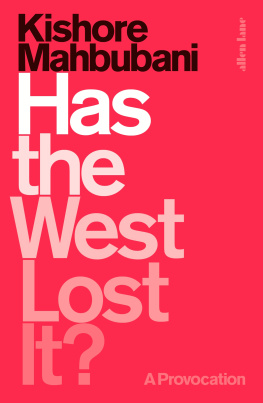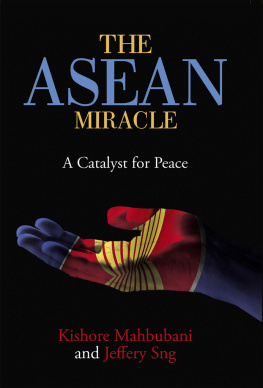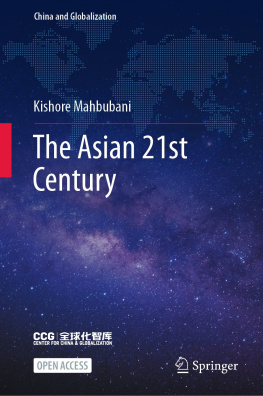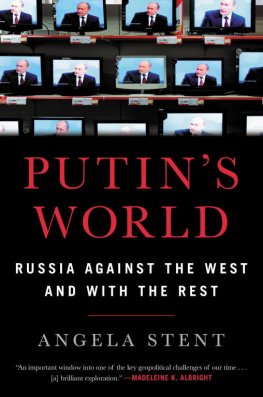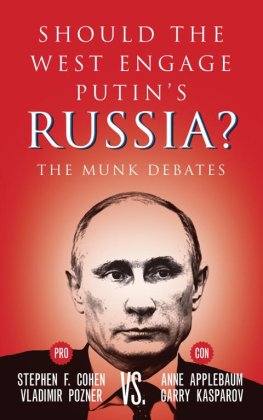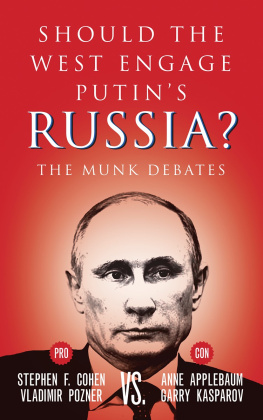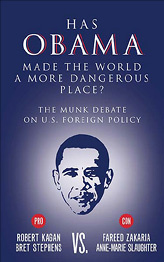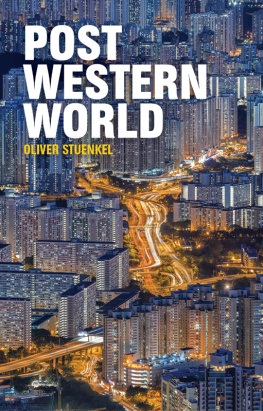A New Order of Things
G7 = the Group of 7: Canada, France, Germany, Italy, Japan, the UK and the US. E7 = the Emerging 7: China, India, Brazil, Mexico, Russia, Indonesia and Turkey.
Suicidal Western Wars
Infant mortality rate is defined as the probability of dying between birth and exactly one year of age expressed per 1,000 live births.
The Blindness of Western Elites
Economic indicators expressed in PPP terms are more valid for international comparisons. This is because PPP-based metrics take into account the differences in cost of living and inflation in the respective countries. PPP is calculated using a basket of goods approach. Using this method, two currencies will have the same value if a predetermined basket of goods is priced the same in both their countries.
The Global Explosion of Travel
The rule of 72 is a shortcut formula by which: years required to double an investment = 72 divided by the annual interest rate.
So Has the West Lost It?
Notes
(accessed 6 June 2017).
(accessed 28 November 2017).
Bertrand Russell, The Study of Mathematics, New Quarterly, November 1907.
Elsje Fourie, Model Students: Policy Emulation, Modernization, and Kenyas Vision 2030, African Affairs, Vol. 113, Issue 453, 1 October 2014, pp. 54062.
(accessed 10 August 2017).
(accessed 10 August 2017).
(accessed 13 March 2017).
(accessed 8 February 2017).
Data sources: 19802020 IMF Database (2016 Economic Outlook), accessed 3 March 2017; 2050 PwC GDP projections.
IMF Database (2017 Economic Outlook). Accessed 5 June 2017.
(accessed 6 February 2017).
(accessed 7 February 2017).
Homi Kharas, The Emerging Middle Class in Developing Countries, Working Paper No. 285, OECD Development Centre: https://www.oecd.org/dev/44457738.pdf (accessed 7 February 2017).
(accessed 13 March 2017).
(accessed 13 March 2017).
(accessed 13 March 2017).
(accessed 13 March 2017).
Source: World Bank, GDP per capita (constant 2010 US$).
Source: World Bank, school enrolment, tertiary, female (% gross).
Source: World Bank, GDP per capita (constant 2010 US$, 1981: 227 US$; 2015: 486 US$).
Kishore Mahbubani, The West and the Rest, National Interest, No. 28, summer 1992, pp. 312.
Source: World Bank Database.
Source: World Bank data on mobile cellular subscriptions (per 100 people).
(accessed 8 February 2017).
Kishore Mahbubani and Jeffery Sng, The ASEAN Miracle: A Catalyst for Peace, Singapore: NUS Press, 2017, p. 114.
Source: World Bank Database (June 2017).
Source: IMF World Economic Outlook (April 2017).
Kishore Mahbubani, Beyond the Age of Innocence: Rebuilding Trust between America and the World, New York: Public Affairs, 2005, p. 144.
Kishore Mahbubani, The Great Convergence: Asia, the West, and the Logic of One World, New York: Public Affairs, 2013, pp. 34.
This was confirmed to the author by a senior American official.
Charles Fisher, Southeast Asia: The Balkans of the Orient? A Study in Continuity and Change, Geography, Vol. 47, No. 4, 1962.
Mahbubani and Sng, The ASEAN Miracle.
Patrick Moynihan, A Dangerous Place, Little, Brown, 1980, p. 247.
Mahbubani, The Great Convergence, pp. 917.
Berlin, The Question of Machiavelli.
Source: World Bank, GDP per capita (constant 2010 US$), accessed 16 March 2017.
Hardeep Singh Puri, Perilous Interventions: The Security Council and the Politics of Chaos, Uttar Pradesh: HarperCollins India, 2016, p. 154.
(accessed 23 March 2017).
Source: The Maddison Project.
Source: OECD projections.
Source: United Nations, medium fertility variant.
Mahbubani, The Great Convergence, pp. 23940.
This was conveyed to the author in an email.
Kishore Mahbubani
HAS THE WEST LOST IT?
A Provocation
there is nothing more difficult to take in hand, more perilous to conduct, or more uncertain in its success, than to take the lead in the introduction of a new order of things.
Niccol Machiavelli, The Prince, Chapter VI
ALLEN LANE
UK | USA | Canada | Ireland | Australia
India | New Zealand | South Africa
Allen Lane is part of the Penguin Random House group of companies whose addresses can be found at global.penguinrandomhouse.com
First published 2018
Copyright Kishore Mahbubani, 2018
The moral right of the author has been asserted
Cover design: Tom Etherington
ISBN: 978-0-241-31294-0
A New Order of Things
Why is the West feeling lost? The answer is simple. In the early twenty-first century, history has turned a corner, perhaps the most significant corner humanity has ever turned yet the West refuses to accept or adapt to this new historical era.
What is this big turn that history has taken? A brief comparison of the past 200 years with the previous 1,800 years will provide the answer. From AD 1 to 1820, the two largest economies were always those of China and India. Only after that period did Europe take off, followed by America. Viewed against the backdrop of the past 1,800 years, the recent period of Western relative over-performance against other civilizations is a major historical aberration. All such aberrations come to a natural end, and that is happening now.
So what is the problem? It is important to understand the nature of our times. The strategist Machiavelli emphasized this when he said: The prince who relies entirely on fortune is lost when it changes. I believe also that he will be successful who directs his actions according to the spirit of the times, and that he whose actions do not accord with the times will not be successful.Yet, even though the spirit of the times has changed, and even though the West will inevitably have to make major adjustments to adapt to this new era, no major Western figure has had the courage to state the defining truth of our times: that a cycle of Western domination of the world is coming to a natural end. Their populations, on the other hand, can feel these large changes in their bones, and in the job markets. This, in part, explains supposedly politically aberrant to the elites at least events like Trump and Brexit.
To reveal to their people the scale and speed of the changes, Western leaders should show the two charts below simultaneously. The frequently cited McKinsey chart (), highlighted by commentator Martin Wolf, shows how China and India have regained their natural share as those of America and Europe have begun to shrink.
The Western share of the global economy will continue to shrink. This is inevitable and unstoppable, as other societies have learnt to emulate Western best practices. Does this mean that Western livelihoods are bound to get worse? The recent stagnation of incomes and rising job losses among the working classes in America and elsewhere seems to suggest that hard times are coming. R. W. Johnson describes well how wages have stagnated:

